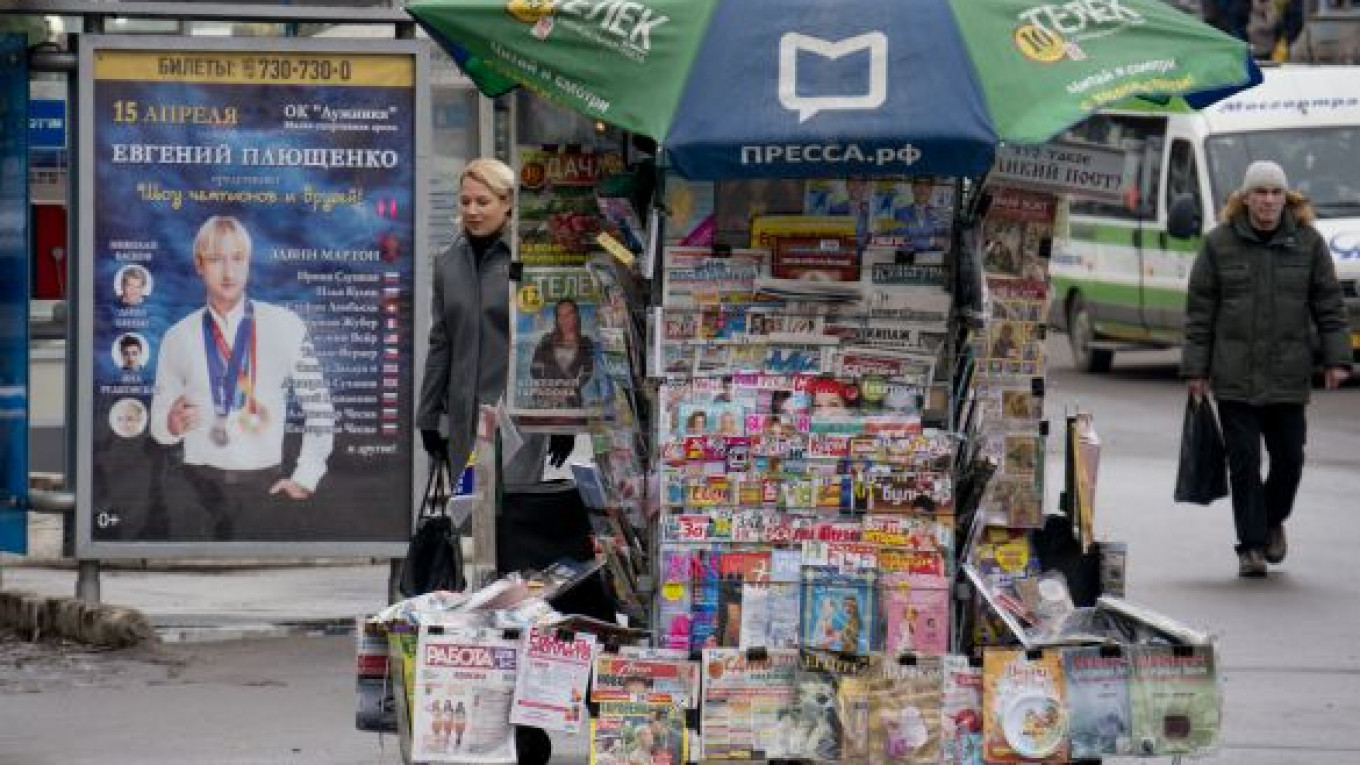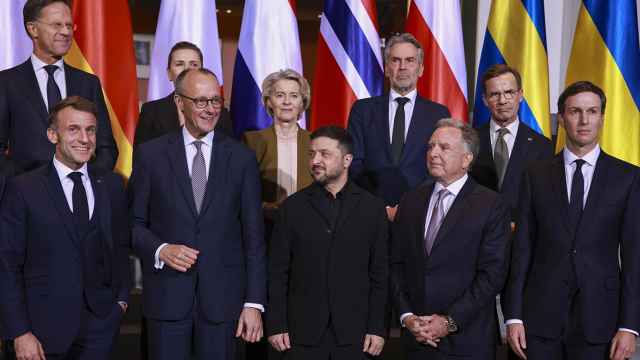The government will end an $85 million annual subsidy to the postal service for newspaper and magazine deliveries, heralding sharp increases in the price of subscriptions and major problems for independent print media — likely reducing their access to Russia's regions.
Russian Post has been receiving 3 billion rubles ($85 million) annually to offset delivery costs, but in the planned federal budget for 2015 — which enters into force in July 2014 — that line item has disappeared. Costs will be transferred onto the shoulders of readers, and the price of subscriptions is likely to rise by 30 to 50 percent.
Russian Post will offer new tariffs that "reflect the cost of the service, meaning that on average, they will double," a spokesperson of Russian Post told RBC Daily newspaper. According to the newspaper, such a twofold increase would apply only to large cities. In the regions, the readjustment to market rates could see the the price of delivery leap by up to five times, while in the far north they could increase eightfold.
The editors-in-chief of a number of national publications, among them Kommersant, Moskovsky Komsomolets and Komsomolskaya Pravda, wrote a letter in December to President Vladimir Putin requesting continuation of the subsidy, which was introduced in 2008 to keep a lid on spiraling delivery costs. According to the authors of the appeal, more than 36 percent of print circulation is currently distributed by post.
There was no reaction to the letter, said Vladimir Sungorkin, editor-in-chief of Komsomolskaya Pravda.
"The practice of subscription will not weather a price jump of even of two times," he said. "About 10 to 15 percent of current subscribers will remain. Authorities, of course, will not suffer in any way — they will save money, and citizens will read only the right newspapers, like [state-owned] Vechernyaya Moskva or Rossiskaya Gazeta ... Whatever happens, these will be sure to receive their subsidies," he added.
Subscriptions account for 15 to 20 percent of Komsomolskaya Pravda's circulation, Sungorkin said. There are 150,000 subscriptions to the daily paper at a cost of 1,314 rubles ($37) for six months, and about 300,000 people buy the 486 ruble ($14) subscription to the weekly version, he said. Half of these prices goes toward delivery, Sungorkin said.
"Few people in the regions, where subscriptions are much more popular than in cities, will be able to find an extra 600 to 700 rubles to pay for their paper," said Alexander Oskin, head of the Press Distributor's Association. Beyond that, polygraphists, distributors, agencies and publishing firms will be hit by the subsidy cuts, Oskin said. "About 1 million people working in this sector of the economy will be thrown out onto the street," he added.
Officials are blunt about the cut: "There is nothing to give. There is no money. Conversations on the theme are meaningless, and publishers are going to have to live in new conditions," said Deputy Press and Communications Minister Alexei Volin.
A Message from The Moscow Times:
Dear readers,
We are facing unprecedented challenges. Russia's Prosecutor General's Office has designated The Moscow Times as an "undesirable" organization, criminalizing our work and putting our staff at risk of prosecution. This follows our earlier unjust labeling as a "foreign agent."
These actions are direct attempts to silence independent journalism in Russia. The authorities claim our work "discredits the decisions of the Russian leadership." We see things differently: we strive to provide accurate, unbiased reporting on Russia.
We, the journalists of The Moscow Times, refuse to be silenced. But to continue our work, we need your help.
Your support, no matter how small, makes a world of difference. If you can, please support us monthly starting from just $2. It's quick to set up, and every contribution makes a significant impact.
By supporting The Moscow Times, you're defending open, independent journalism in the face of repression. Thank you for standing with us.
Remind me later.






